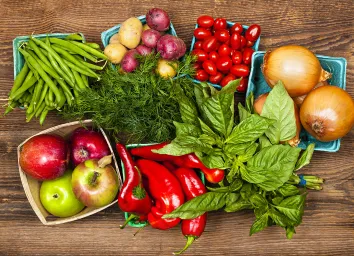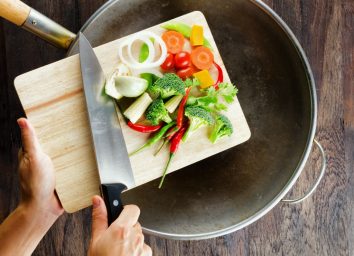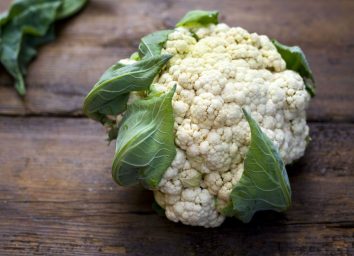5 Surprising Side Effects of Eating Home Cooked Food
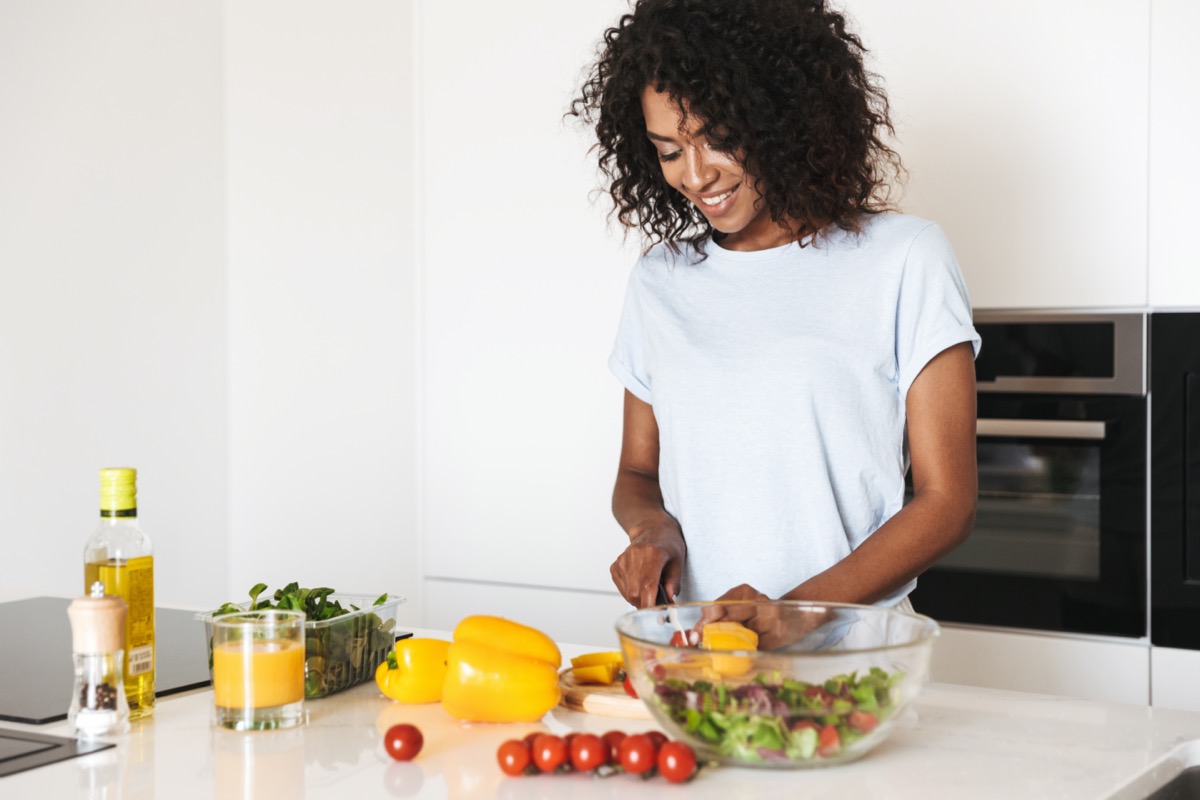
One of the many things this pandemic has taught us all is that cooking is a valuable skill. With the disappearance of restaurants during the shutdown of businesses, we've been forced to rely on our own home cooking knowhow to feed ourselves and our loved ones—maybe more than ever. No matter where you land on the novice-to-pro scale, you've likely been making food at home a lot more frequently than you're used to, and you may be reaching a cooking fatigue. If that's the case, we're here to affirm that your cooking efforts are not in vain.
Besides the fact that home cooking takes some extra planning, shopping, and time, there are incredible benefits that come with it. You may have noticed that, although you're eating the same number of meals as you normally would, your overall energy levels are up, you've started losing weight, and generally feel more appreciative and proud of the food you consume. Maybe you've been able to break some bad eating habits and have less of an affinity for snacking along the way. Here are some well-documented health benefits that come as a side effect of home cooking. Sign up for our newsletter to get the latest food news and recipes delivered straight to your inbox.
You're eating a healthier diet without trying
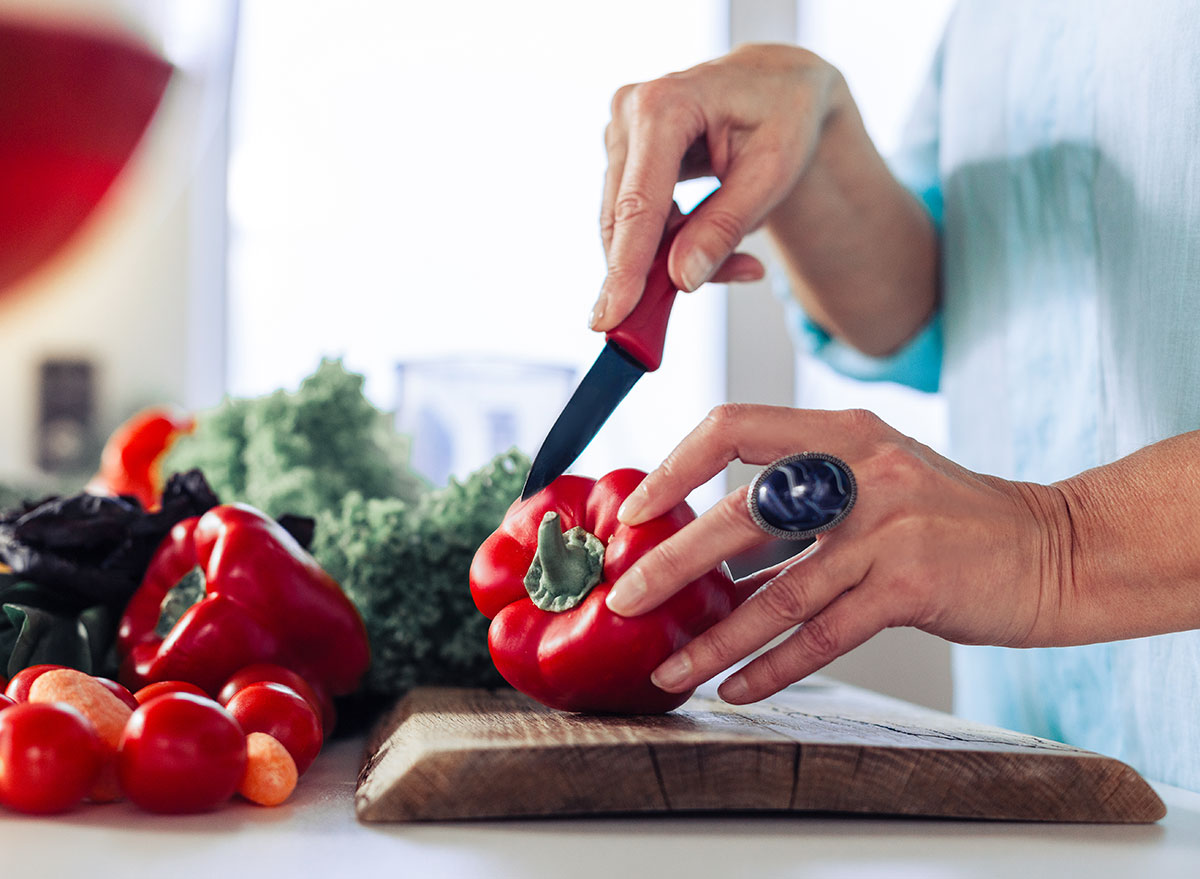
"Food cooked at home is usually prepared in healthier ways than restaurant foods," says registered dietitian Melanie Betz. Just think of all the fried foods you'd be tempted to order at a restaurant—at home, you're a lot less likely to use such unhealthy methods of food preparation. Most of us turn to roasting or grilling our food at home, which means we're also reducing the intake of unhealthy fats and overall calories.
A study conducted at Johns Hopkins Center for a Livable Future has shown that people who frequently cook at home eat healthier diets and tend to consume fewer calories on average. In fact, home cooks tend to eat less even when they're eating out. Julia A. Wolfson, the lead author of the study, noted that eating less is a side effect of home cooking, even when people aren't trying to lose weight. "When people cook most of their meals at home, they consume fewer carbohydrates, less sugar and less fat than those who cook less or not at all," she says. Need some healthy dinner recipe inspo? Check out our collection here.
You're eating smaller portions

Some say weight loss is easier to achieve when you're cooking your meals at home, even without strict diets and restrictions to your eating habits.
For one, you're better able to control the parts of your meal that usually conceal sneaky calories, like added oils and added sauces. Sure, that restaurant salad may taste incredible, but at what cost? You may be eating hundreds of calories in salad dressing without even knowing it. When you're cooking at home, you're less likely to eat such a calorie-packed meal.
Another very important contributor to weight loss is portion control, and this is where restaurants are really doing our health a disservice—we usually end up eating way more than we need, just because there's a huge portion of food on our plate and hey, we're only human. But when eating home cooked food, we're less likely to overload our plates, and there are many strategies that can help us put the fork down before it's too late. "You can choose a smaller plate, a greater ratio of veggies to protein, and put additional helpings out of sight easily when you are cooking in your home," says Shena Jaramillo MS, RD of Peace & Nutrition. Here's what Perfect Food Portion Sizes Actually Look Like.
You're improving your cardiovascular health
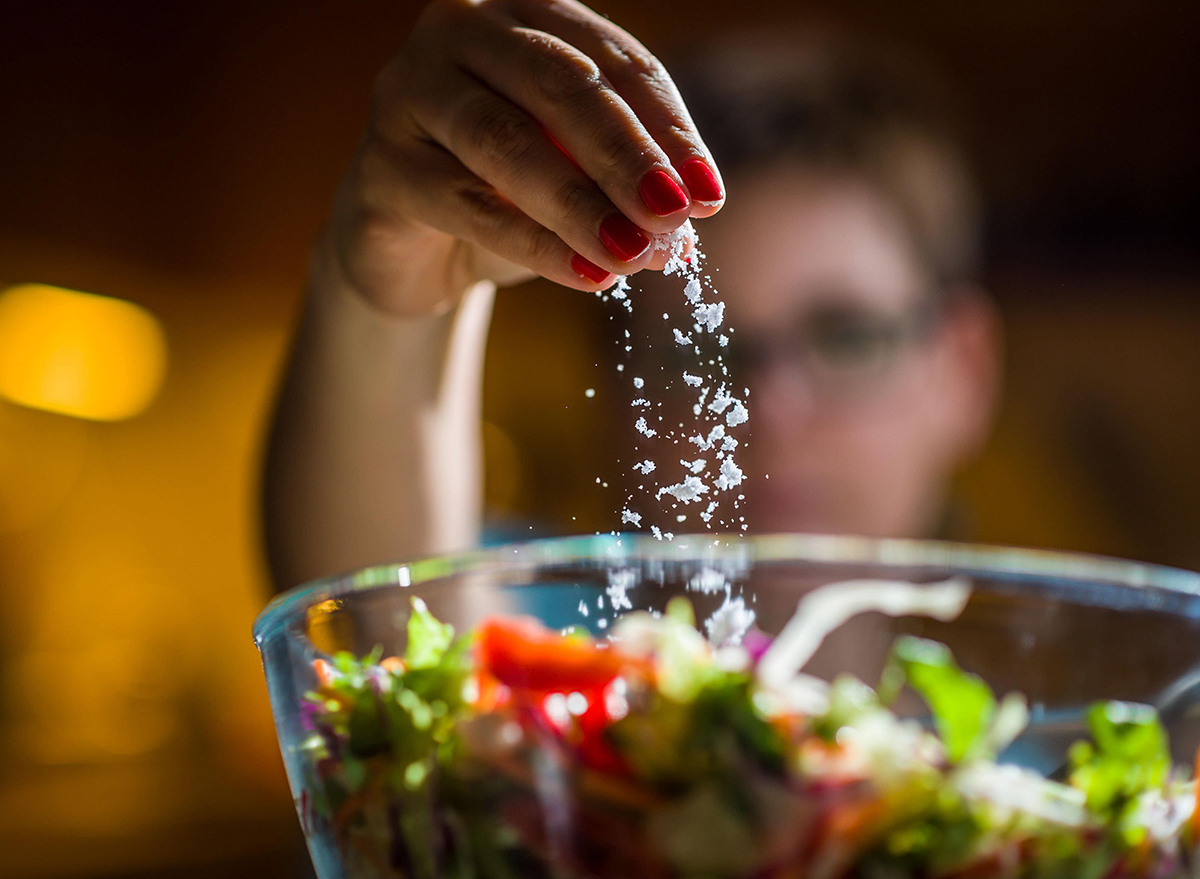
One of the greatest benefits of cooking from home is that you're completely in control of your food and exactly what goes into it. Jaramillo cautions that restaurants design their menu items for maximum flavor instead of health benefits. And more often than not, the food at restaurants tastes as good as it does because there's a shocking amount of salt in it. When cooking your own food, you're more likely to be mindful of how much salt you're adding, and you'll rarely be able to match restaurant-level saltiness. Reducing your salt intake will most definitely improve your cardiovascular and kidney health by lowering your blood pressure and chances of a stroke or kidney disease. Plus, don't forget that salt makes you bloated, so get ready to feel lighter immediately. Here are some easy ways to reduce your sodium intake.
You're bonding with family and improving your mental health
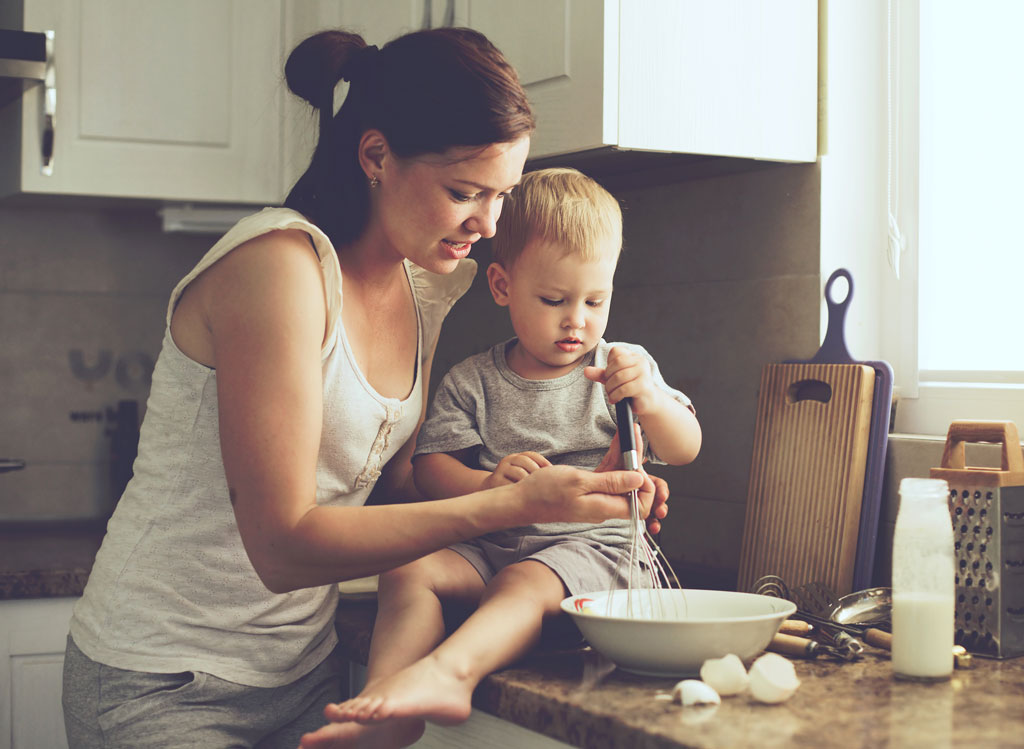
We absolutely won't deny that home cooking takes planning and effort, but it can also be an effective way to bring the family together around a relaxing shared activity. In other cases, it can serve as a much-needed meditative activity to engage in for some quality me-time. "Home cooking cultivates a sense of belonging and even reduces symptoms of depression," says Dr. Rashmi Byakodi. And the reward of this newfound creative hobby is immediate—you get to enjoy the nutritious fruits of your labor right away.
You're saving money

Dining out frequently can really eat up a huge chunk of your monthly food budget. "When you're cooking most of your meals at home, you save on the restaurant mark up costs, service charges, gratuities, gas, and parking fees," says registered dietitian Amy Chow. And there are so many ways to save on your grocery bill, like finding deals, meal planning, buying in bulk, and cooking foods like soups and casseroles that can be eaten for several days in a row.
